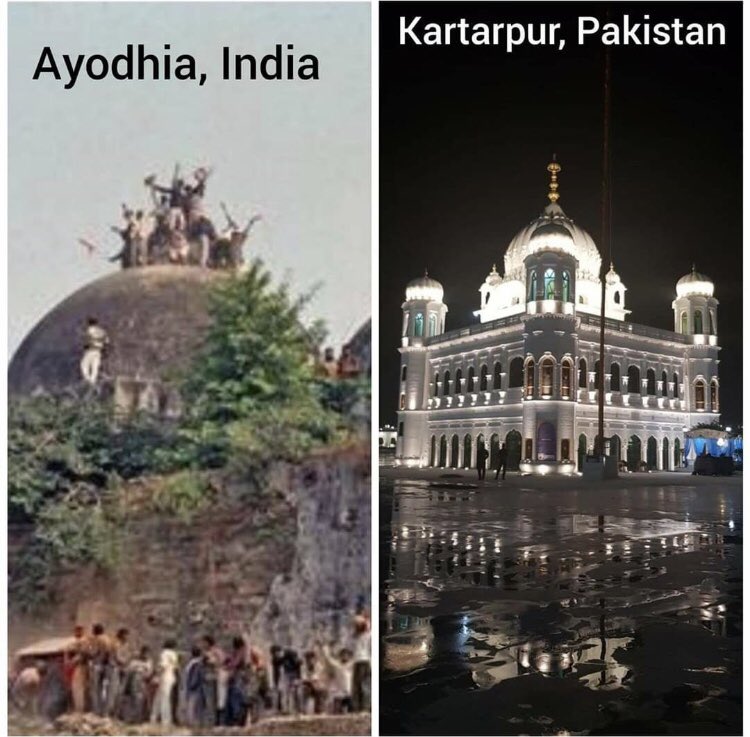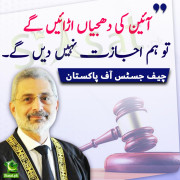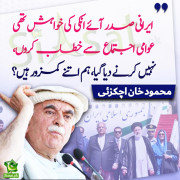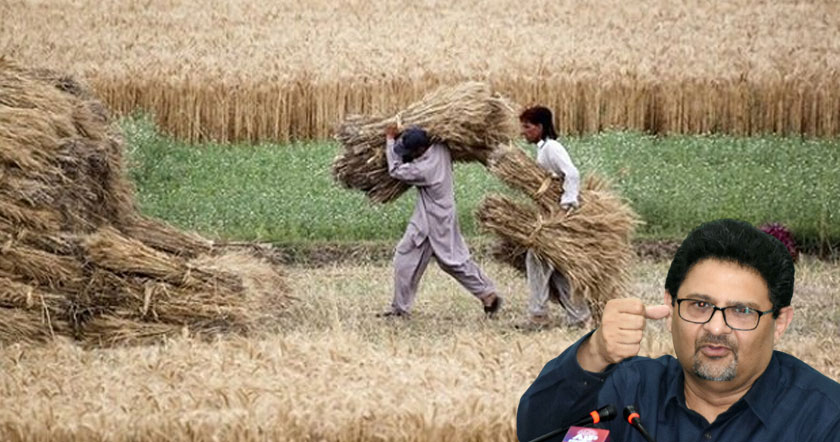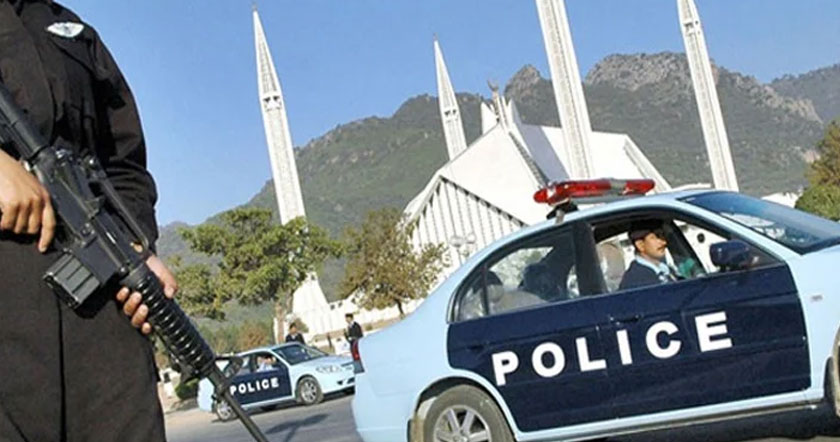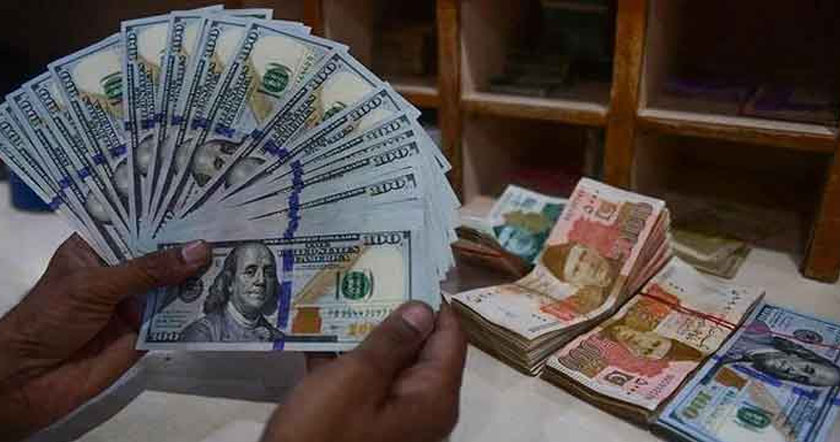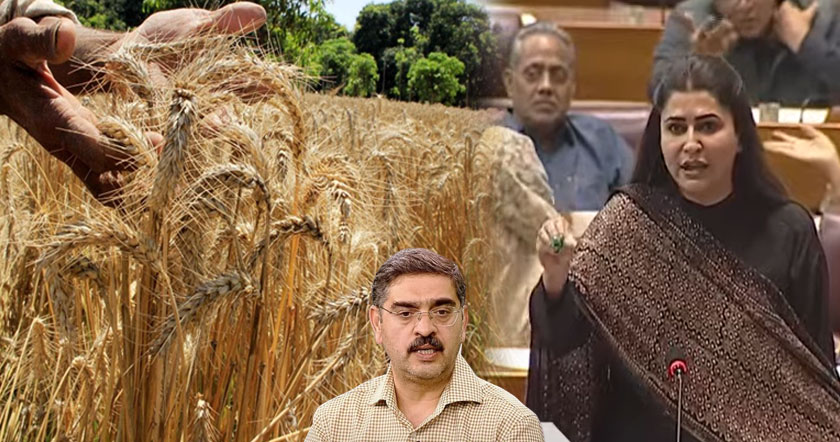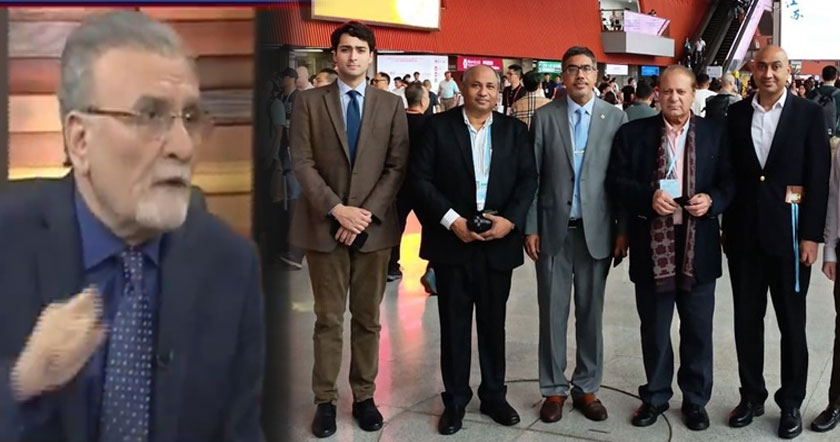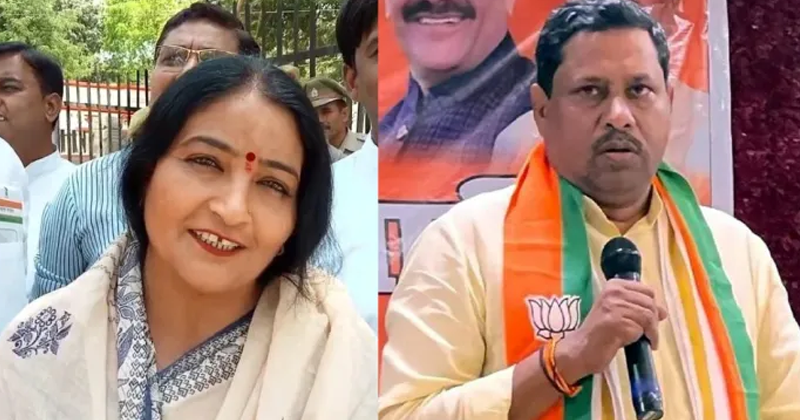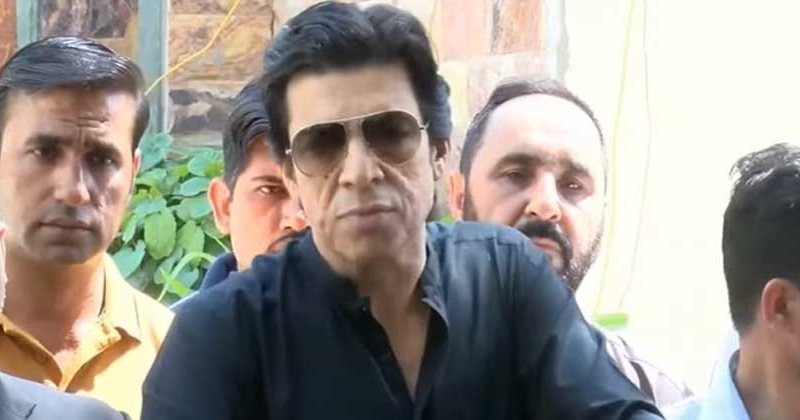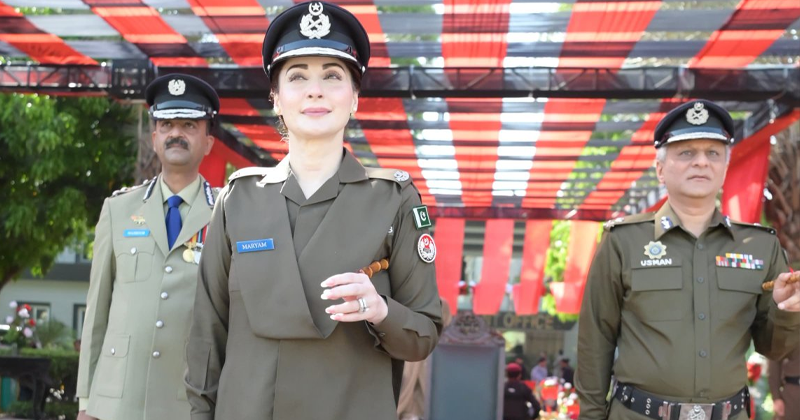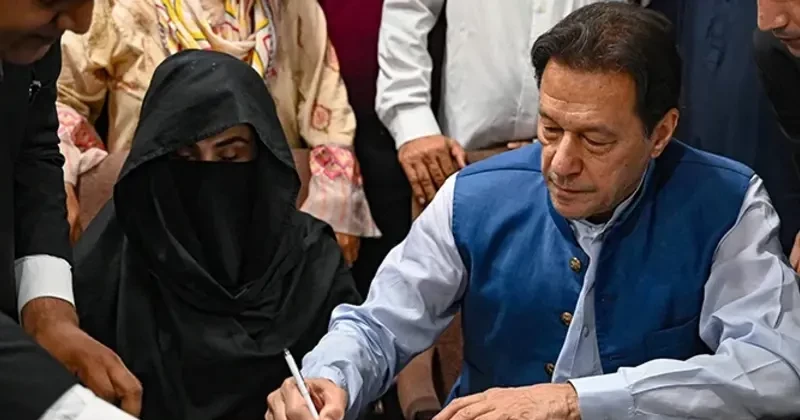November 9, 2019 will go down in South Asian history as a day of sharp contrasts: While Pakistan restored and opened Gurdwara Darbar Sahib in Kartarpur for Sikh pilgrims, the Indian Supreme Court ordered the construction of a Hindu temple on the site where Babri Masjid stood for centuries. Can India and its western apologists still claim to have shared values?
Shared Values:
At a congressional hearing on the Capitol Hill in Washington in October, 2019, American Congresswoman Ilhan Omar asked Ms. Alice Wells, Assistant Secretary of State for South Asia, the following pertinent question:
"Kashmiris have been restricted from communicating outside their country for 50+ days. In Assam, almost 2 million people are being asked to prove their citizenship. This is how the Rohingya genocide started. At what point do we question whether PM Modi shares our values?"
The question of shared values has been forcefully answered in the negative by the Indian Supreme Court in its Ayodhya verdict. This judgement by India's apex court has rewarded the criminal acts of Hindu Nationalists by ordering the construction of Ram Temple on the land where centuries-old Mughal-era Babri Masjid was destroyed in 1992.
Mr. Modi's actions and Indian Supreme Court's acquiescence have forced Financial Times's Gideon Rachman to conclude that "India’s Narendra Modi has had a free pass from the west for too long". And Ed Luce, also from Financial Times, has written as follows: "During my session (at Bangalore Literary Festival) I was asked about the biggest threat to the future of global liberal democracy. My answer was Narendra Modi".
The only shared values between Washington and New Delhi are those of President Trump and Prime Minister Modi. Both leaders share hatred of minorities, particularly Muslims and immigrants.
Kartarpur Corridor:
Pakistan restored and opened Gurdwara Darbar Sahib and signed an agreement with India to open a visa-free corridor for Indian Sikh pilgrim to visit the shrine on Baba Guru Nanak's 550th birthday.
Prime Minister Modi also wants to take credit for the corridor to attempt to show that he is not against minorities. But the fact is that Prime Minister Imran Khan left Modi little choice but to go along by making Kartarpur Sahib reality in record time.
Hindu Temples in Pakistan:
Pakistan Supreme Court recently took suo moto action to protect ancient Katas Raj temple in Chakwal district. The temple has a water pond that has been drying up due to falling water table in the region. The Supreme Court has ordered local officials to come up with a plan to restore the water pond to restrict ground water withdrawal by industries and farms to maintain the pond considered holy by Hindus.
Pakistan has also opened a 1,000-year-old Hindu temple in Sialkot for puja for the first time since partition in response to demand by the local Hindu community, according to media reports. In addition, Pakistan is restoring and reopening 400 Hindu temples across the country.
Indian Muslims:
While Prime the actions of Minister Modi's government have caused a great deal of concern among Muslims for their future in India, Indian Supreme Court's Ayodhya verdict has shown that the institutions of Indian democracy are surrendering to the the growing power of Hindu Nationalists. Indian Muslim journalist Rana Ayub has summed up their fears in her Washington Post column as follows:
"Muslims in India fear that this would indeed be the beginning of reimagining India with Muslims as second-class citizens as envisaged by right-wing supremacists. A resounding message has been sent to the more than 200 million Muslims in the country that they must bear every humiliation and injustice with the silence expected of an inferior citizenry. I and millions of my co-religionists have been made to feel like an orphan yet again in the land we have loved, cherished and called our own. A land whose liberation from the British was fought by revolutionaries and freedom fighters that included our own forefathers. I wonder if that cherished freedom holds any meaning in the new India that seeks to erase my legacy and my existence".
Jinnah was right:
Quaid-e-Azam Mohammad Ali Jinnah saw the threat posed to Muslim interests by Hindu majoritarianism in India as far back as 1938. Speaking to the Muslim League in the Central Legislative Assembly, he set out his stance of permanent majorities and minorities as follows:
“From the first contact it is not a democratic majority in the seven Congress provinces [that came to power after the 1937 election]. It is not a democratic majority that has formed the Government and is carrying on; it is the permanent Hindu majority which cannot be altered by any change whatsoever and therefore it is the travesty of the system which may be worthwhile in England. But when it is planted here, you see, that it is a failure. What is the result – the permanent Hindu majority and the ministry that is a Hindu ministry.”
Summary:
While Pakistan is trying to make amends by promoting religious freedoms for minorities, Prime Minister Modi's India is turning into a Hindu Rashtra by making Muslims second-class citizens. Yet, India's western apologists are still promoting the idea of strategic partnership based on shared values. Mr. Modi's actions and Indian Supreme Court's acquiesce have forced Financial Times's Gideon Rachman to conclude that "India’s Narendra Modi has had a free pass from the west for too long".
Here are video clips of US Congress's Hearing on Kashmir held on Oct 22, 2019:
http://www.riazhaq.com/2019/11/south-asian-contrast-ayodhya-and.html
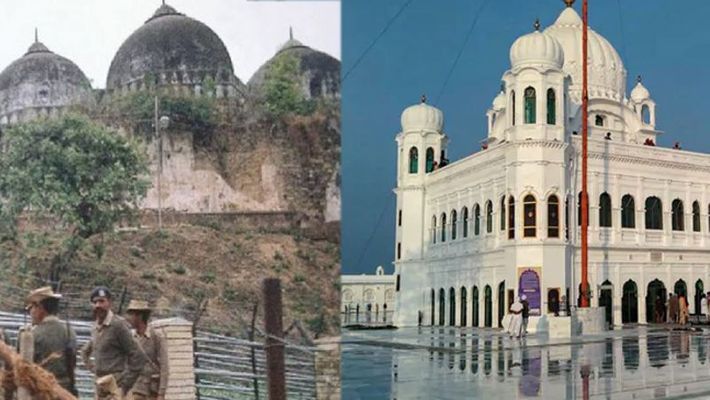
|
| Babri Masjid (L) and Darbar Sahib Kartarpur (R) |
Shared Values:
At a congressional hearing on the Capitol Hill in Washington in October, 2019, American Congresswoman Ilhan Omar asked Ms. Alice Wells, Assistant Secretary of State for South Asia, the following pertinent question:
"Kashmiris have been restricted from communicating outside their country for 50+ days. In Assam, almost 2 million people are being asked to prove their citizenship. This is how the Rohingya genocide started. At what point do we question whether PM Modi shares our values?"
The question of shared values has been forcefully answered in the negative by the Indian Supreme Court in its Ayodhya verdict. This judgement by India's apex court has rewarded the criminal acts of Hindu Nationalists by ordering the construction of Ram Temple on the land where centuries-old Mughal-era Babri Masjid was destroyed in 1992.
Mr. Modi's actions and Indian Supreme Court's acquiescence have forced Financial Times's Gideon Rachman to conclude that "India’s Narendra Modi has had a free pass from the west for too long". And Ed Luce, also from Financial Times, has written as follows: "During my session (at Bangalore Literary Festival) I was asked about the biggest threat to the future of global liberal democracy. My answer was Narendra Modi".
The only shared values between Washington and New Delhi are those of President Trump and Prime Minister Modi. Both leaders share hatred of minorities, particularly Muslims and immigrants.
Kartarpur Corridor:
Pakistan restored and opened Gurdwara Darbar Sahib and signed an agreement with India to open a visa-free corridor for Indian Sikh pilgrim to visit the shrine on Baba Guru Nanak's 550th birthday.
Prime Minister Modi also wants to take credit for the corridor to attempt to show that he is not against minorities. But the fact is that Prime Minister Imran Khan left Modi little choice but to go along by making Kartarpur Sahib reality in record time.
Hindu Temples in Pakistan:
Pakistan Supreme Court recently took suo moto action to protect ancient Katas Raj temple in Chakwal district. The temple has a water pond that has been drying up due to falling water table in the region. The Supreme Court has ordered local officials to come up with a plan to restore the water pond to restrict ground water withdrawal by industries and farms to maintain the pond considered holy by Hindus.
Pakistan has also opened a 1,000-year-old Hindu temple in Sialkot for puja for the first time since partition in response to demand by the local Hindu community, according to media reports. In addition, Pakistan is restoring and reopening 400 Hindu temples across the country.
Indian Muslims:
While Prime the actions of Minister Modi's government have caused a great deal of concern among Muslims for their future in India, Indian Supreme Court's Ayodhya verdict has shown that the institutions of Indian democracy are surrendering to the the growing power of Hindu Nationalists. Indian Muslim journalist Rana Ayub has summed up their fears in her Washington Post column as follows:
"Muslims in India fear that this would indeed be the beginning of reimagining India with Muslims as second-class citizens as envisaged by right-wing supremacists. A resounding message has been sent to the more than 200 million Muslims in the country that they must bear every humiliation and injustice with the silence expected of an inferior citizenry. I and millions of my co-religionists have been made to feel like an orphan yet again in the land we have loved, cherished and called our own. A land whose liberation from the British was fought by revolutionaries and freedom fighters that included our own forefathers. I wonder if that cherished freedom holds any meaning in the new India that seeks to erase my legacy and my existence".
Jinnah was right:
Quaid-e-Azam Mohammad Ali Jinnah saw the threat posed to Muslim interests by Hindu majoritarianism in India as far back as 1938. Speaking to the Muslim League in the Central Legislative Assembly, he set out his stance of permanent majorities and minorities as follows:
“From the first contact it is not a democratic majority in the seven Congress provinces [that came to power after the 1937 election]. It is not a democratic majority that has formed the Government and is carrying on; it is the permanent Hindu majority which cannot be altered by any change whatsoever and therefore it is the travesty of the system which may be worthwhile in England. But when it is planted here, you see, that it is a failure. What is the result – the permanent Hindu majority and the ministry that is a Hindu ministry.”
Summary:
While Pakistan is trying to make amends by promoting religious freedoms for minorities, Prime Minister Modi's India is turning into a Hindu Rashtra by making Muslims second-class citizens. Yet, India's western apologists are still promoting the idea of strategic partnership based on shared values. Mr. Modi's actions and Indian Supreme Court's acquiesce have forced Financial Times's Gideon Rachman to conclude that "India’s Narendra Modi has had a free pass from the west for too long".
Here are video clips of US Congress's Hearing on Kashmir held on Oct 22, 2019:
http://www.riazhaq.com/2019/11/south-asian-contrast-ayodhya-and.html


